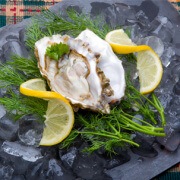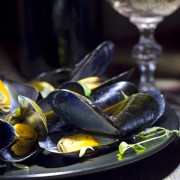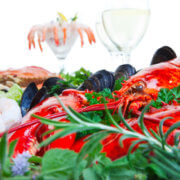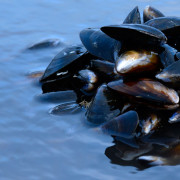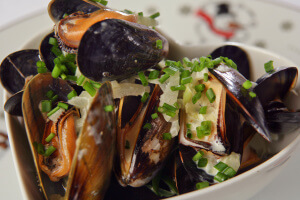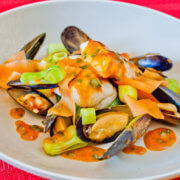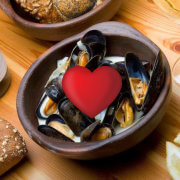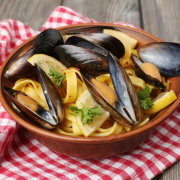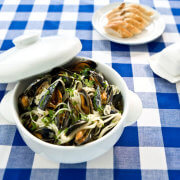Cultural Delight
Mussels are a cultural delight: a dish that you are as likely to find in a fine dining restaurant as in the local pub, and quick and easy to whip up at home. Scottish mussels are some of the best in the world. Prepared with other local ingredients, they make a meal to remember.
Rope Grown
Our mussels are rope-grown on the West Coast of Scotland and in the Shetland Isles, but that wasn’t always the case. They have been a part of our diet for more than 20,000 years, and while cultivation started in the thirteenth century, there was plenty of hard work that went into harvesting them prior to that.
Collecting Mussels by Hand!
It was not uncommon to spend hours collecting mussels by hand from their natural environment, walking along the sea shore with a bucket and perhaps a knife to gently ease the shell away from the rock. The mussels may then have been placed into saltwater to continue to fatten up and filter out some of the grittiness before being cooked up.
Mussel Stew
A traditional Scottish recipe for mussel stew included staples that we see in other mussel-loving cultures around the world: garlic, parsley and cream. These days we are more likely to opt for moules marinière. Tarragon is a novel replacement herb, giving the dish a warming sensation perfect for those chilly Scottish evenings.
Natural Bed vs Cultivated
Mussels collected from natural beds often have a gritty texture, and may not be as plump as cultivated ones. Farming allows for fat, juicy specimens that soak up the seasoning as they cook, and never offending with a sandy mouth-feel.
Eco-friendly
The methods that we use on our small isle mean that mussels are ecologically sound, too. In Europe and much of the rest of the world, mussels are harvested through dredging, harming starfish and other creatures. With rope grown cultivation, Scotland’s mussels do only good.



